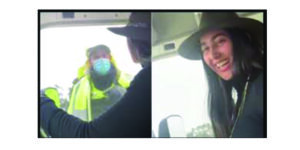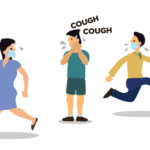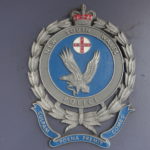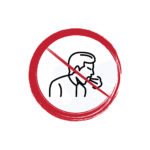Coronavirus Sceptic Faces Fines for Allegedly Breaching Public Health Order

Coronavirus sceptic, Eve Black, (which is apparently not her real name) is facing thousands of dollars in fines for allegedly failing to comply with a public health order.
Ms Black uploaded a video to social media last week of her driving through the Victorian Border checkpoint, which earned her plenty of criticism from members of the general public.
On social media she wrote: “No fine, drove straight out of Melbourne, they took no info from me.
“No license, no questions of theirs were answered. They work for us, not the other way around.
I don’t believe there’s a pandemic. It’s a SCAMdemic. Know your rights.”
At the time, Deputy Commissioner Rick Nugent called her defiance a “selfish and childish act” and police vowed to catch up with her.
And it prompted a lot of questions about whether failing to comply with a Public Health Order is indeed illegal. The answer is yes.
Police smashed car window
When Police eventually caught up with Ms Black, in the suburb of Carlton, it’s alleged that she refused to get out of her vehicle. Police smashed the window of her car, and she is now expected to be charged with a range of offences, including: breaches of directives from the Chief Health Officer, along with traffic offences, failing to produce her driver licence and not providing her name and address to police.
Tough restrictions continue
Victorian Police Officers are expected to keep their tough stance on policing in the coming weeks after it was revealed that one in four people who have tested positive to covid-19 are not adhering to stay at home orders.
Out of 500 people who were doorknocked by Defence Force personnel and public health officials on this week, there were more than 130 doors unanswered, and residents assumed not to be home. About 100 people have been referred to police for questioning.
The number of coronavirus cases in Melbourne has continued to surge in the past weeks, despite lockdowns, and Premier Daniel Andrews has suggested that restrictions are likely to get tougher, which could involve closing all non-essential shops and placing extra limits on people’s movements.
Masks are mandatory
Masks are mandatory in metropolitan Melbourne, and residents are subject to stay-at-home orders which means they can only leave home for essential work, study, exercise, shopping or care responsibilities.
Masks will be required for everyone across the southern state from Sunday, if they are heading out of home. Failure to comply could result in a $200 fine.
Border closures
The New South Wales and Queensland borders remains closed to Victorians until further notice. Anyone wanting to cross needs to fill to have a valid reason and needs to have filled out a declaration or an exemption form. The Police presence is heavy at checkpoints and all vehicles are being checked. You may be fined up to $11,000 or jailed for up to six months, or both if you cross into New South Wales without a permit. If you breach any of the requirements under the Borders Direction heading into Queensland, you could receive an on the spot fine of $1334 or a or a court-imposed penalty of up to $13,345.
If you provide false, misleading or incorrect information on a Queensland Border Declaration it is an offence punishable by a fine of $4004 or a court-imposed penalty of up to $13,345.
The wider metropolitan Sydney area has also been declared a hotspot by the Queensland Government. What this means is that anyone from these areas, or who has recently visited these areas may not be permitted into Queensland. If they are, they will have to undertake a period of self-isolation.
Resisting an arrest New South Wales
If you are stopped by Police, you are required to give them your name and address (and provide your licence, or other ID) if you are requested to do so.
It’s also important to know that Police can use ‘reasonable force’ to arrest someone. What is reasonable force, depends on the circumstances of the arrest. It’s also important to know that if you resist arrest, you can also be charged.
The offence of resisting arrest and/or hindering police in the execution of their duty is laid out in section 546C of the Crimes Act 1900, and comes with a maximum penalty of 12 months imprisonment and/or a $1,100 fine.
Conduct that may amount to resisting arrest includes refusing to be handcuffed, struggling and attempting to get away. Conduct that may amount to an assault – including kicking or punching at police – may also constitute resisting.
If police use unreasonable force to arrest someone, or if they arrest someone unlawfully, then a formal complaint can be laid against them.
If you are arrested, you will be expected to give your personal identifying information, but you can refuse to answer any questions until you have a legal representative present.







